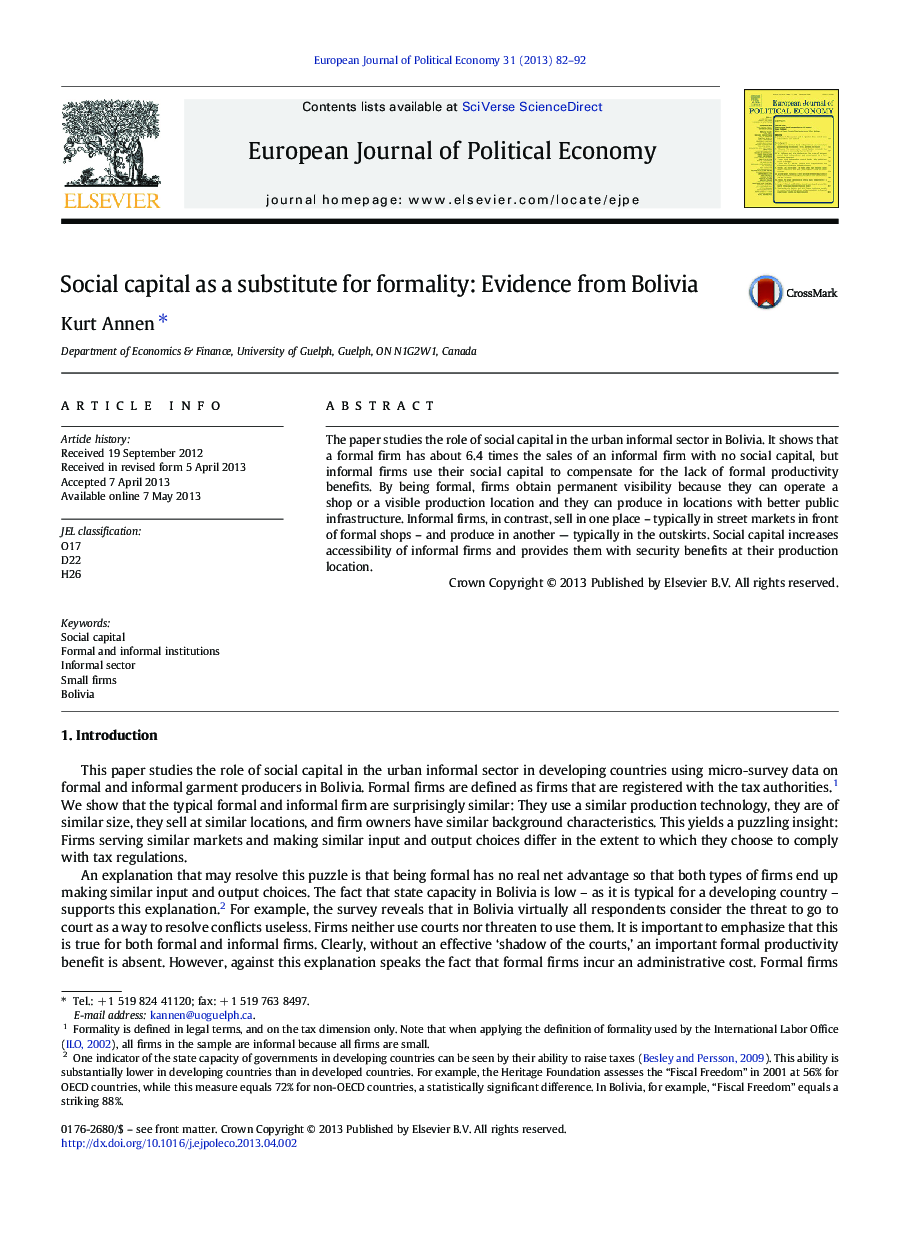| Article ID | Journal | Published Year | Pages | File Type |
|---|---|---|---|---|
| 5067947 | European Journal of Political Economy | 2013 | 11 Pages |
â¢The paper uses survey data to study small garment producers in Bolivia.â¢It shows that informal firms use social capital as a substitute for formal status.â¢Social capital increases accessibility and provides security benefits for informal firms.â¢Policy conclusions show how to increase formalization in developing countries.
The paper studies the role of social capital in the urban informal sector in Bolivia. It shows that a formal firm has about 6.4 times the sales of an informal firm with no social capital, but informal firms use their social capital to compensate for the lack of formal productivity benefits. By being formal, firms obtain permanent visibility because they can operate a shop or a visible production location and they can produce in locations with better public infrastructure. Informal firms, in contrast, sell in one place - typically in street markets in front of formal shops - and produce in another - typically in the outskirts. Social capital increases accessibility of informal firms and provides them with security benefits at their production location.
